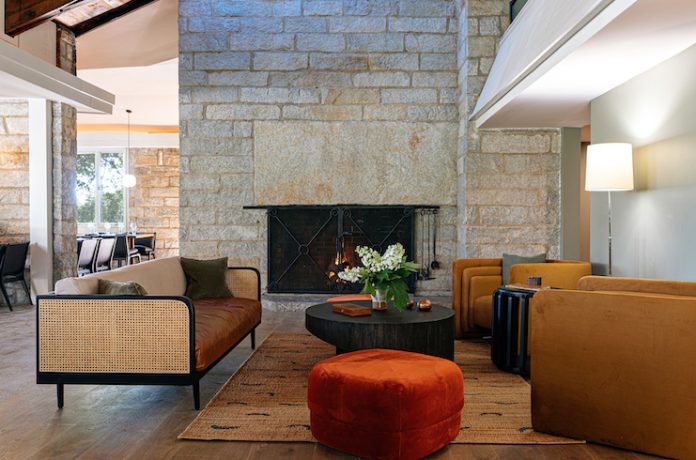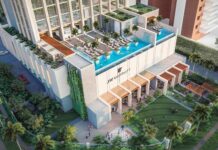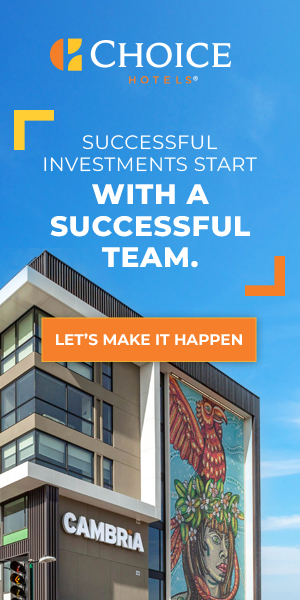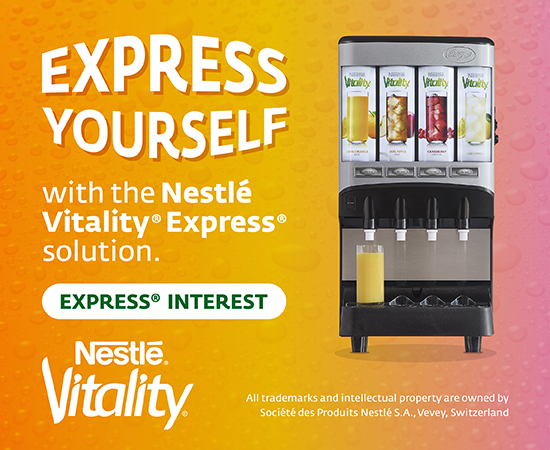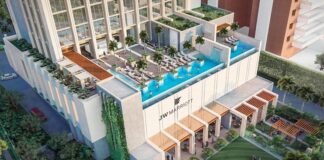At this year’s Americas Lodging Investment Summit (ALIS) in Los Angeles, Larry J. Spelts, president, Lodging and Lifestyle Adventures at the Indigo Road Hospitality Group, recently described for LODGING how and why this restaurant owner and operator, which recently ventured into third-party hotel management, took the plunge and invested in the Skyline Lodge in Highlands, N.C., after the property’s buyer backed out of the deal during the pandemic. Spelts also discussed how the company’s food and beverage orientation informs its approach to their hotels and how they compete to attract guests and hospitality employees.
What’s the story behind your purchase and renovation of the Skyline Lodge during the pandemic?
We began this journey as the third-party management company for a client that was purchasing the property, but when the pandemic began, the closing was delayed several times, after which the bank withdrew its loan commitment. Our client, the would-be buyer, then walked away from the deal for the property they had under contract, although they had gotten a good price and had already made a substantial investment in its purchase.
That’s when my business partner and friend, Steve Palmer—who is founder of Indigo Road Hospitality Group—and I began hatching a plan. After running the underwriting by the other two partners—passive investors—we reached a deal with the seller, who, after owning the asset for 30 years was able to do seller financing in which he agreed to assign the LLC to us and we agreed to cover his asset carrying costs until we could secure financing both for the purchase and renovation.
Things that worked in our favor were our balance sheet based on our history as a restaurant company and that we were able to first secure a bridge loan and then permanent financing through the USDA Rural Development Program. Also, because this asset was considered important historically and architecturally, we qualified for historic tax credits, which helped fund the renovation that is still underway. And because we were an independent, not a franchise, we were able to open before the renovation was complete and begin a revenue stream. We opened a few rooms and our restaurant the week of July 4, and now have 28 of the 40 guestrooms finished.
Beyond that it was a “good deal,” why did you rush the renovation and opening, and did it pay off?
As it turns out, this Highlands and Cashiers location, on top of Flat Top Mountain, is a destination that did well during the pandemic partly because it was perceived as a safe kind of escape destination from larger cities less than a five-hour drive away in ‘feeder markets’ such as the Carolinas, Tennessee, and Atlanta.
We underwrote the hotel to run an average rate of $325, and, right now, on the books, we’ve got an average rate of about $415, and we’ve received very good guest feedback.
Where does this fit in with your other hospitality business?
Until recently, Indigo Road, founded by Steve, was strictly in restaurants. Right now, there are 27 in total—24 that we own and three that we third-party manage. At one point, Steve, who is an old friend from our early hotel career days, chose to focus on F&B while I stayed in hotels. Noticing that third-party hotel management companies were not executing on the food and beverage in the hotels they operated, Steve began offering his services to hotels, and asked me to join him to handle that part of the business.
Naturally, our focus is F&B–driven hospitality, so we really lean hard into creating a great food and beverage experience. Steve and I joke that you can trust a good food and beverage operator to run a hotel, but don’t ever ask a hotel operator to manage your restaurant.
We’re working on a number of hotel development projects—F&B-driven boutique hotels, including The Ellington in Naples, Florida, and The Flatiron Hotel in Asheville, North Carolina, which was postponed. There is also a 1940s-era mountain lodge currently under contract in the Western North Carolina Smokey Mountains. And we have a very attractive project right now in Walla Walla, Washington.
Between hotels and restaurant, we definitely have two paths for growth—purely third-party management and doing our own acquisitions with investors. It’s definitely a mixed bag for a portfolio.
How do you approach F&B in hotels?
We treat the food and beverage in all the hotels we work on as standalone businesses; and we have some unbreakable basic golden rules about developing food and beverage concepts for hotels. Without giving away any trade secrets, I can say these concepts must stand on their own, with their own individual branding and be associated with the brand identity of the hotel. In some of our hotels, there are rooftop bars, basement speakeasies, and a great ground-floor restaurant. They need to be marketed to locals as well as hotel guests.
On the lodging side, we incorporate food and beverage into every guest touchpoint. For example, at the Skyline Lodge, we turned the lobby into a coffee shop served by front-office team members who are trained as baristas. We also have grab-and go-pastries baked by our pastry chef available for purchase throughout the day. We can offer arriving guests a glass of champagne, cocktail, coffee, etc.
How are you dealing with the labor shortage that is once again plaguing the industry?
In our effort to attract and retain the kind of committed team members we want, we market to recruit them in much the same way we do customers; we compete for market share, in this case, by publicizing our desirability as an employer. Unlike many in our industry, we offer full health benefits. We also have a home-buying program with an interest-free loan for down payments for housing, and for employees with us at least a specific amount of time, and we have tuition assistance.



